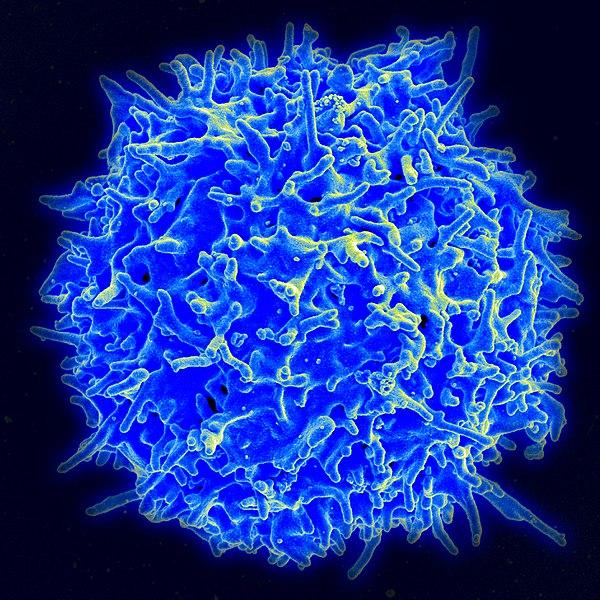
Credit: NIAID
Scientists at the University of Southampton’s Centre for Cancer Immunology have gained new insight into how the immune system can be better used to find and kill cancer cells.
Working with BioInvent International, a team led by Professor Mark Cragg and Dr Jane Willoughby from the Antibody and Vaccine Group, based at the Centre, have shown that antibodies, designed to target the molecule OX40, give a more active immune response when they bind closer to the cell membrane and can be modified to attack cancer in different ways.
OX40 is a ‘co-receptor’ that helps to stimulate the production of helper and killer T-cells during an immune response. One of the ways cancer avoids detection is by suppressing immune responses to stop functional tumour specific T-cells from being produced.
In the study, which has been published in Journal for ImmunoTherapy of Cancer, the team also discovered that switching the antibody’s isotype (the part of the antibody that engages with cells of the immune system) could change the way the antibody worked.
When the mIgG2a isotype was used, the antibody could delete cells called Treg cells which are suppressive in the immune system. When the mIgG1 isotype was present, the antibody could stimulate killer T-cells to increase and therefore kill more cancer cells.
Professor Cragg said: “Clinical trials with anti-OX40 antibodies have shown that the body can tolerate these drugs but unfortunately have also shown disappointing clinical responses. We need to understand why this is.
“This new data shows us that when there is a cancer with lots of Tregs we could use the equivalent of the m2IgGa isotype and in patients where we feel we need better cytotoxic T cells we could use the equivalent of a mIgG1 isotype to boost the immune response. This information is important for developing the next generation of OX40 antibodies that we hope will be more effective in treating patients with cancer.”
###
Notes to Editors
1) Contact Peter Franklin, Media Realtions, University of Southampton. Tel: 07748 321087 Email: [email protected].
2) Reference: Jane E Willoughby, Mark S Cragg et al, Domain Binding and Isotype Dictate the Activity of Anti-human OX40 Antibodies; Journal for ImmunoTherapy of Cancer, https:/
3) For more about the University of Southampton’s Centre for Cancer Immunology visit: https:/
4) The University of Southampton drives original thinking, turns knowledge into action and impact, and creates solutions to the world’s challenges. We are among the top 100 institutions globally (QS World University Rankings 2021). Our academics are leaders in their fields, forging links with high-profile international businesses and organisations, and inspiring a 22,000-strong community of exceptional students, from over 135 countries worldwide. Through our high-quality education, the University helps students on a journey of discovery to realise their potential and join our global network of over 200,000 alumni. http://www.
Media Contact
Peter Franklin
[email protected]
Original Source
https:/
Related Journal Article
http://dx.




